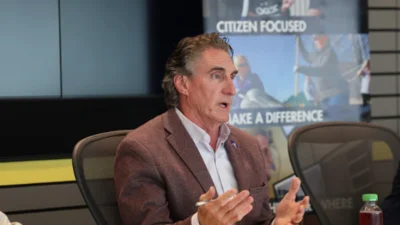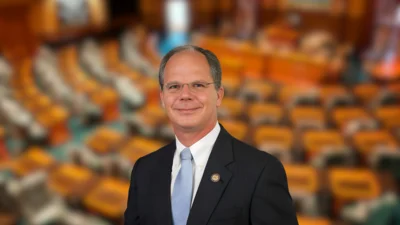Regulation shapes everything from housing costs to daily commutes. Policymakers today must decide whether to cut back outdated rules with data and technology or pile on precautionary mandates. Adrian Moore, vice president of policy at Reason Foundation, says that the government works best when it measures impact and lets markets and modern tools do their job.
Moore serves as a senior policy leader at Reason, advises officials across levels of government, and testifies before Congress. He was in the military reserves before graduating training in economics and history. He researches privatization, regulatory reform, transportation, air quality, urban growth, prisons, and utilities.
According to Moore, deregulation under recent administrations draws a candid scorecard. “The first Trump administration is more systematic and successful on deregulation,” he says. Leadership focus “has been on other issues” this time, and some early cuts “are not as transparent as they could be and cause chaos,” prompting rollbacks. He says structure matters. “Agency appointees do the heavy lifting when they have data and a clear green light, like the two-for-one rule,” he says, adding that statewide models in Florida and Virginia offer templates when central management falls short.
Moore says the process beats blitzes. “Somewhere between first-glance changes and six months of study sits the right answer,” he says. Congress, he says, fails to “pass the laws to back up the efforts,” leaving reforms exposed. Technology, however, offers leverage. “These AI tools work like a research assistant,” he says. “If they can parse hundreds of thousands of code pages, you see outdated rules, weird add-ons, and conflicts that no one spots piecemeal.”
The fight over regulation itself has shifted, according to Moore. “We used to debate whether government improves on a market failure,” he says. “Now proposals try to prophylactically prevent imagined future harms before markets even have a chance to solve problems.” That trend shows up in the rush to regulate AI. “I can’t answer with data when the market never works unencumbered,” he says, warning that precaution wins “by default” if evidence never gets collected.
Moore says that local governments control supply. “Markets work like the market for apples: demand outruns permits, prices rise.” He credits recent progress to a surprising coalition. “A YIMBY wave starts on the left in California and spreads,” he says. “States like Texas, Florida, and Montana make it easier to add duplexes and similar homes and harder to block new construction.” The principle is to “allow the supply of housing to keep up with demand.”
Transportation reform follows the same logic, according to Moore. “Buses now beat rail on flexibility and cost,” he says. “Bus rapid transit increases ridership when agencies compete to make transit attractive instead of restricting cars.” He says rail remains valuable for freight and gets smarter, too. “Automated rail inspection with AI reduces cost and improves safety. Fewer derailments follow when you find problems early.”
Moore believes the goverment should reduce compliance burdens and reduce unnecessary rules. “Those goals go together.” Agencies, he argues, should adopt continuous review as technology advances. “Our process doesn’t let go when tech solves the original problem,” he says. “That has to change.”









